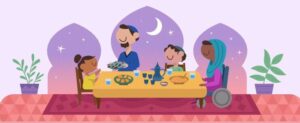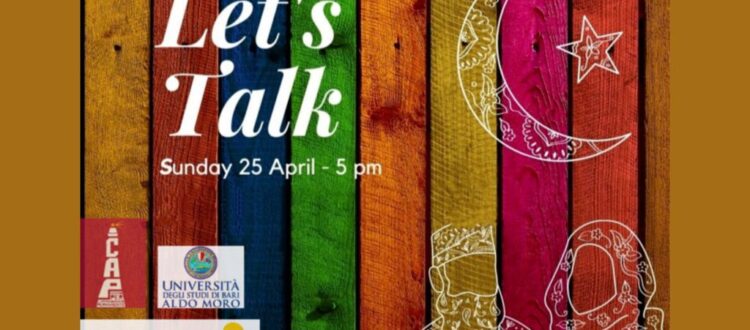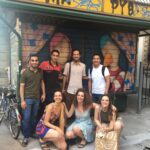Let’s talk: stories of migration and sharing
Sunday, April 25 2021, as the Mentorship Committee of the University of Bari Aldo Moro, we organized on Google Meet platform an event called “Let’s Talk” a kind of public debate in which we had the opportunity to confront us, listening to the experiences of our international students and beyond. During the event we had the opportunity to explore different themes: from the many stories of immigration to take the opportunity to discuss different religions and cultures, passing through all those difficulties that a person can experience when he finds himself in a country other than his own, such as, for example, the obstacle of applying for a residence permit at the police station, various bureaucratic procedures few clear, public policies not entirely inclusive, difficulties in researching homes as a result of preconceptions or stereotypes about foreigners, problems of CARA/ CAS and invisible workers.
So we have not limited our gaze to the condition of an international student, but we have extended it to the condition of any person who finds himself in a new context, regardless of the role he plays (worker or student)thus addressing the issue of immigration in general.
“I felt lost” are the exact words with which our Mexican student described her situation as soon as she arrived in Italy. We were very impressed by this sentence because we think that many other people felt the same way and maybe they still feel that way.
We were very impressed by this sentence because we think that many other people felt the same way and maybe they still feel that way. In the second part of our event, we had the opportunity to deepen the theme of Ramadan thanks to our mentor Maouloud who lives first hand this sacred and spiritual month for the Muslim community.
“Islam is a religion that attaches great importance to the intention (niyya, in Arabic) and the will to carry out an action. Participation in Ramadan must therefore be carried out with awareness and maximum seriousness.

Ramadan is the name of the month of fasting provided by Islam to celebrate the month in which the Coran was revealed to men, so as to guide them towards the path of Allah (“God” in Arabic).
It does not occur on recurring days (such as Christian Christmas, which always falls on December 25), but falls on the ninth month of the year of the particular Muslim calendar; Unlike “our” Gregorian calendar, it is divided into 354 or 355 days, 10 or 11 less than the calendar year, so every year that passes, the month of fasting moves “backwards” from month to month and from season to season. Basically, during Ramadan there is fasting (sawn), to be understood not only as abstention from food and drink, but also to avoid acts that could upset the spirit and body, such as smoking or having bad thoughts towards the community (umma). It is therefore a moment of high spirituality, in which one experiences deprivation and meditation far from earthly distractions in order to approach the divinity.
As for the prohibition of eating and drinking, it lasts throughout the day of Ramadan, until the sun sets; when the sun sets, the fast is broken with a frugal meal (Tradition has it that you want to eat some dates and drink a cup of water, as did Muhammad, the Prophet of Islam). The Ramadan ends after 29 or 30 days with a feast called “the little feast”, during which, in addition to a ritual meal, offerings are made for the poorest of the community.
At the end, we concluded our event by comparing religious customs between Muslims and
Catholics, (such as, for example, fasting in the month of Ramadan and Lent which is done for
Easter), between customs of the same religion but of different countries (for example Catholicism
Italian and Senegalese Catholicism).
From what emerged in this debate, we hope that the birth of our Committee will facilitate
and lighten the university experience of our international students through the support of
our mentors
Flavia Censi


